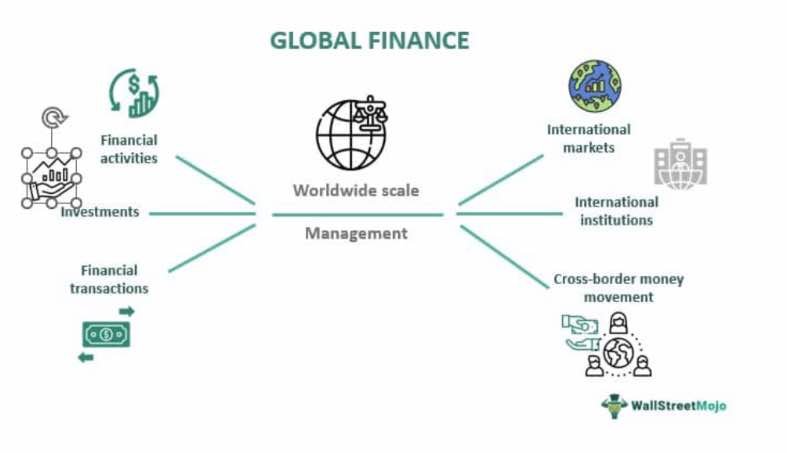Purdue Global Finance Department is a pivotal hub for students aiming to master financial principles and practices in a modern economy. Its comprehensive curriculum equips learners with the necessary skills to thrive in various sectors, from corporate finance to personal financial advising. This department not only emphasizes theoretical knowledge but also the practical implications of finance in today’s dynamic marketplace.
With a focus on real-world applications and critical thinking, students engage with experienced faculty and industry professionals, enhancing their understanding of complex financial systems. The blend of academic rigor and hands-on experience prepares graduates to navigate the challenges of the financial world adeptly.
In today’s fast-paced and technology-driven society, digital literacy has become an essential skill set for individuals across all walks of life. The ability to effectively navigate and utilize digital platforms is not just a desirable capability but a necessity in many aspects of personal and professional development. As we dive deeper into the intricacies of digital literacy, it becomes increasingly clear that it encompasses more than mere computer skills; it includes the ability to critically analyze, create, and share information responsibly in an online environment.
Defining Digital Literacy
Digital literacy can be defined as the ability to find, evaluate, utilize, share, and create content using information technologies and the internet. This broad concept covers a range of skills from basic computer operation to complex skills such as coding and digital content creation. In essence, digital literacy empowers individuals to participate fully in a digital society, equipping them with the tools to succeed in their personal and professional lives.
Why is Digital Literacy Important?
As we navigate through an increasingly digital world, several key reasons highlight the importance of being digitally literate:
- Educational Opportunities: With the rise of e-learning platforms, access to educational materials has never been easier. Digital literacy enables individuals to engage with online courses, webinars, and educational resources that can enhance their knowledge and skills.
- Career Advancement: Many industries now require a basic understanding of digital tools and platforms. Whether it’s using software for data analysis, managing social media accounts, or collaborating on cloud-based platforms, digital literacy can significantly improve employability and career prospects.
- Informed Decision-Making: The internet is a vast ocean of information. Digital literacy allows individuals to discern credible sources from unreliable ones, helping them make informed decisions about health, finance, and personal issues.
- Social Connectivity: In the age of social media, being digitally literate is crucial for maintaining personal relationships. It allows individuals to connect, communicate, and share experiences with family and friends, regardless of geographic barriers.
Components of Digital Literacy
Digital literacy is multi-faceted, consisting of several key components that work together to create a well-rounded skill set:
- Technical Skills: These are the foundational skills necessary to operate devices such as computers, tablets, and smartphones. This includes understanding operating systems, software applications, and the internet.
- Information Literacy: This involves the ability to locate, evaluate, and use information effectively. It includes skills such as searching for information using search engines, assessing the credibility of sources, and synthesizing information from multiple sources.
- Critical Thinking: Digital literacy requires the ability to think critically about the information found online. This includes recognizing biases, understanding context, and questioning the validity of information.
- Communication Skills: The ability to communicate effectively online is crucial. This includes writing emails, engaging in discussions on forums, and using social media platforms responsibly.
- Digital Citizenship: Being a responsible digital citizen means understanding the ethical implications of online behavior. This includes respecting copyright laws, understanding privacy settings, and engaging respectfully in online communities.
Challenges to Achieving Digital Literacy
Despite its importance, many individuals face challenges in developing digital literacy skills. Some of these challenges include:
- Lack of Access: Not everyone has equal access to technology or the internet. This digital divide can hinder the development of digital literacy skills for those in underserved communities.
- Generational Gaps: Older adults may struggle with new technologies, leading to disparities in digital literacy across generations. Programs aimed at bridging this gap can help enhance skills among older populations.
- Information Overload: With the vast amount of information available online, individuals may feel overwhelmed and unsure of where to begin. Learning to filter and prioritize information is a crucial skill that needs to be developed.
Promoting Digital Literacy
To address the challenges and promote digital literacy, several strategies can be implemented:
- Educational Programs: Schools, libraries, and community centers can offer workshops and courses aimed at enhancing digital skills. These programs should cater to various skill levels to accommodate beginners as well as advanced learners.
- Mentorship Initiatives: Pairing tech-savvy individuals with those seeking to improve their digital skills can create an environment of learning and support. Mentorship allows for personalized guidance and encouragement.
- Inclusive Access: Efforts should be made to provide access to technology in underserved communities. This can include providing devices, internet access, and training programs to ensure equitable opportunities for all.
The Future of Digital Literacy
As technology continues to evolve, so too will the skills required for digital literacy. Emerging technologies such as artificial intelligence, virtual reality, and blockchain will create new opportunities and challenges. Therefore, continuous learning and adaptability will be crucial for individuals to remain relevant in the workforce and society.
In conclusion, digital literacy is a foundational skill in the modern world, impacting education, career prospects, decision-making, and social interactions. As we move forward, it is essential to prioritize the development of these skills for individuals of all ages to ensure a more informed and engaged society.
Commonly Asked Questions
What types of degrees does the Purdue Global Finance Department offer?
The department offers various degrees, including bachelor’s and master’s programs in finance, with options for online learning to accommodate different schedules.
Are there any internship opportunities available through the finance program?
Yes, Purdue Global encourages students to pursue internships, providing valuable real-world experience that can enhance their resumes and career prospects.
How does the finance curriculum prepare students for certification exams?
The curriculum includes courses that cover key topics aligned with professional certification exams, ensuring students are well-prepared for credentials like CFA or CFP.
Can students participate in networking events through the finance department?
Absolutely! The department regularly hosts networking events, connecting students with industry professionals and alumni for mentorship and career opportunities.
What support services are available to finance students?
Purdue Global offers various support services, including academic advising, career counseling, and access to financial resources to help students succeed.










